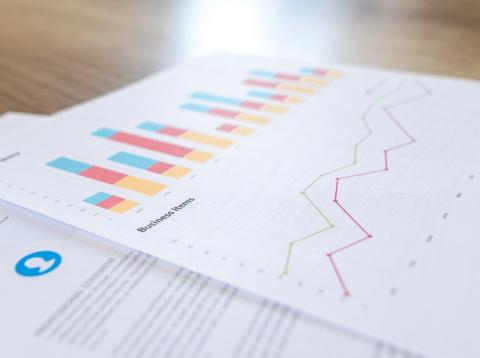Staging a Successful Virtual Conference - Tips & Tricks



Today, the International Public Sector Accounting Standards Board (IPSASB) is proud to announce that it will achieve gender parity in its membership for the first time. With the appointment of three new Board members, the IPSASB will be comprised of nine women and nine men beginning January 1, 2021. Additionally, Ms. Lindy Bodewig of South Africa has been appointed IPSASB Deputy Chair for 2021.
The new appointees to the IPSASB have been selected following a rigorous nominations and interview process involving the IFAC Nominating Committee, IPSASB leadership, IFAC Board, and the Public Interest Committee.
The three new Board members are:
The following four current Board members have been reappointed:
“Achieving gender parity is a great milestone that we should all be celebrating,” said IPSASB Chair Ian Carruthers. “The IPSASB relies on diverse perspectives and experiences to develop and deliver high-quality accounting standards that can strengthen public financial management globally. I look forward to working with both our incoming Board members and those members that will be continuing their service with us in 2021.”
The IPSASB also announces today the appointment of Lindy Bodewig as Deputy Chair for 2021. Ms. Bodewig has served on the Board since 2017 and is also a Member of the Accounting Standards Board in South Africa. She currently works in the Office of the Accountant-General at the South African National Treasury.
“Lindy brings a huge depth of expertise to the Board table, through the powerful combination of her day job in government and being a national and international standard setter for the public sector. With many important and challenging projects on our current agenda, I look forward to working alongside Lindy, and the other Board members and IPSASB staff, as we move our challenging and important work program forward,” said Mr. Carruthers. “I also wish to thank Michel Camoin, Do-Jin Jung, and Rod Monette who are completing their terms this year for their steadfast service to the IPSASB. They have all made excellent contributions to our work during their time with the Board, and we are grateful for their dedication and commitment.”
About the IPSASB
The International Public Sector Accounting Standards Board (IPSASB) works to strengthen public financial management globally through developing and maintaining accrual-based International Public Sector Accounting Standards® (IPSAS®) and other high-quality financial reporting guidance for use by governments and other public sector entities. It also raises awareness of IPSAS and the benefits of accrual adoption. The Board receives support from the Asian Development Bank, the Chartered Professional Accountants of Canada, the New Zealand External Reporting Board, and the governments of Canada and New Zealand. The structures and processes that support the operations of the IPSASB are facilitated by the International Federation of Accountants (IFAC). For copyright, trademark, and permissions information, please go to permissions or contact permissions@ifac.org.
About the Public Interest Committee
The governance and standard-setting activities of the IPSASB are overseen by the Public Interest Committee (PIC), to ensure that they follow due process and reflect the public interest. The PIC is comprised of individuals with expertise in public sector or financial reporting, and professional engagement in organizations that have an interest in promoting high-quality and internationally comparable financial information.


The project to revise the IAASB’s going concern standard is primarily focused on standard-setting actions that are intended to address targeted revisions of ISA 570 (Revised), rather than a comprehensive revision of the standard.
In revising the standard, the IAASB aims to:
The IAASB is currently working on a project to revise ISA 240, The Auditor’s Responsibilities Relating to Fraud in an Audit of Financial Statements. In revising this standard, the IAASB aims to:

Earlier today, the Organisation for Economic Co-operation and Development (OECD) hosted the seventh annual meeting of the Partnership of International Organisations for Effective International Rulemaking (IO Partnership).
The meeting concluded with the publication of a Joint Statement of International Organisations in Support of Effective International Rulemaking.
Signed by nearly 50 major international organizations, as diverse as the World Health Organization (WHO), World Trade Organization (WTO), United Nations Educational, Scientific and Cultural Organization (UNESCO), the International Energy Agency (IEA), and the International Organization for Securities Commissions (IOSCO), the Joint Statement reiterates the central role that international organizations play in promoting the global public good, tackling transboundary issues, and achieving the United Nations Sustainable Development Goals (SDGs).
IFAC is proud to be a member of the OECD IO Partnership and a signatory to the Joint Statement. The Joint Statement complements IFAC’s G20 Call to Action and its themes of Recommit to Global Collaboration and Resist Regulatory Fragmentation.
“The COVID crisis has been a wake-up call,” said Kevin Dancey, IFAC CEO. “No one can effectively address the problems of the 21st century acting alone. The OECD IO Partnership is invaluable because it positions us to learn from one another, effectively coordinate, and better deliver on our respective public interest mandates and SDGs.”
Nicola Bonnuci, IO partnership facilitator, commented, “The IO Partnership provides an ideal space to exchange on the challenges facing IOs in the adaptation of our rulemaking activities to arising emergencies and the changes of the digital era, to rethink the forms of cooperation between IOs, and to deliver instruments that are trusted by governments, civil society and other stakeholders.”
ABOUT IFAC
The International Federation of Accountants (IFAC) is the global organization for the accountancy profession dedicated to serving the public interest by strengthening the profession and contributing to the development of strong international economies. IFAC comprises more than 175 members and associates in more than 130 countries and jurisdictions, representing more than 3 million accountants in public practice, education, government service, industry, and commerce.
ABOUT THE OECD IO PARTNERSHIP
The OECD established the Partnership of International Organisations for Effective International Rulemaking (IO Partnership), a voluntary platform of IOs, academics, and OECD Regulatory Policy Committee (RPC) delegates, to exchange good practices and promote greater quality, effectiveness, and impact in international rulemaking. Meeting annually, the IO Partnership reflects on issues central to the international rulemaking processes, including transparency, inclusiveness, implementation, monitoring, promotion and coordination.
